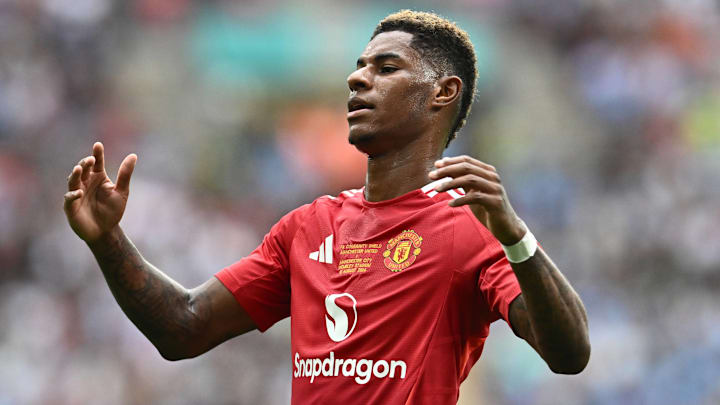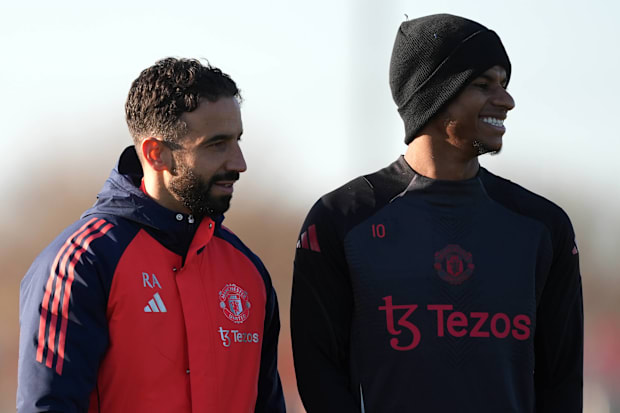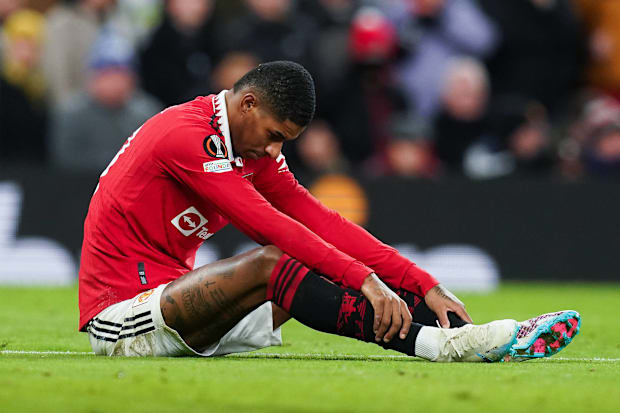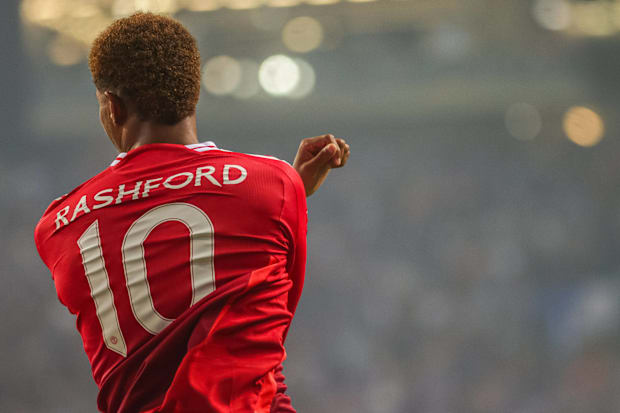Marcus Rashford's Manchester United Downfall: How It All Unraveled

Two summers back, when Manchester United revealed that Marcus Rashford had committed to a five-year deal with the club, the announcement came with the phrase: "Where you belong."
Less than 18 months later, it became crystal clear that Rashford's place was no longer there.
In a rare public statement last December, Rashford expressed his readiness for a "fresh opportunity", speaking about potentially departing his childhood club as a question of "when" not "if". The 27-year-old hasn't featured for United since making those remarks and appears unlikely to return after securing his second consecutive loan departure from Old Trafford.
Rashford previously described himself as "a seven-year-old boy with a dream". Now it resembles more of a nightmare. How did things go so terribly awry?
Falling Short of Amorim's Standards

One individual is particularly eager to claim responsibility for Rashford's departure. After his loan transfer to Aston Villa was confirmed last winter, United's new head coach Ruben Amorim boldly stated: "I'm here saying that was my decision."
Initially, things looked promising. Rashford netted the opening goal of Amorim's tenure after merely 81 seconds. Despite featuring in only four Premier League matches under the Portuguese manager, the unpredictable attacker found the net three times—a figure surpassed by just two squad members over the following four months.
However, their conflict centered on effort rather than results.
"I couldn't convince Marcus to understand the proper way to approach football and training as I envision it," Amorim expressed after excluding Rashford from 13 straight matches. This icy confrontation—which appeared to compel Amorim to devise fresh methods of publicly criticizing Rashford weekly, including stating he'd prefer having a 63-year-old goalkeeping coach on the bench over his former starting forward—concluded only with the player's Villa transfer.
"The issue relates to training, how I perceive what footballers should demonstrate in training, in life, it's daily, every aspect," Amorim further explained, alluding to the debate around Rashford's activities away from football—which wasn't entirely unprecedented criticism.
The Broader Problems

The storm clouds surrounding Rashford didn't suddenly appear when Amorim walked through Old Trafford's aging entrance. Just three months following his five-year contract signing, Erik ten Hag condemned Rashford's choice to visit a nightclub after a Manchester derby loss as "unacceptable".
In January 2024, the constantly monitored forward became tabloid fodder across English media after being spotted in two questionable Northern Irish nightclubs on back-to-back weeknights before missing training due to illness.
However, that Belfast incident doesn't account for why Rashford has only intermittently displayed periods of strong performance throughout his career. The natural left-sided player has exceeded 20 combined goals and assists in merely two of his 10 Premier League campaigns. It's telling that these seasons align with two years when Manchester United secured third place, employing a style of direct counter-attacking football that perfectly suited Rashford's abilities.
Marcus Rashford's Man Utd Stats in the Premier League
Season (League Finish) | Games | Goals / Assists |
|---|---|---|
2015–16 (5th) | 11 | 5 / 2 |
2016–17 (6th) | 32 | 5 / 1 |
2017–18 (2nd) | 35 | 7 / 5 |
2018–19 (6th) | 33 | 10 / 6 |
2019–20 (3rd) | 31 | 17 / 7 |
2020–21 (2nd) | 37 | 11 / 9 |
2021–22 (6th) | 25 | 4 / 2 |
2022–23 (3rd) | 35 | 17 / 5 |
2023–24 (8th) | 33 | 7 / 2 |
2024–25 (15th) | 15 | 4 / 1 |
Stats via FBref.
Throughout Ole Gunnar Solskjær's initial complete season in charge, Rashford accumulated 17 Premier League goals as the focal point of a simplistic yet efficient transition-based team. This self-imposed philosophy of following the 'Manchester United way' affected the players mentally.
As Solskjær later revealed on the Stick to Football podcast: "I consistently viewed them as needing to embody Manchester United, attempt to be United, avoid defending, don't rely on counterattacks, simply allow the players to compete, go head-to-head with opponents because otherwise there's no purpose in representing Manchester United." It failed. "They weren't prepared," Solskjær reflected. "Simply not capable enough."
Ten Hag arrived at Old Trafford with similar aspirations of perceived greatness but quickly returned to a counter-attacking strategy after the traumatic 4–0 Brentford defeat in August's sweltering conditions. The Dutch manager went as far as stating: "We aspire to become the world's finest transition team."
In some respects, it succeeded. United achieved third place in 2022–23 while generating more counter-attacking goals than any other Premier League team—with Rashford contributing a third of that total. Unlike Solskjær, Ten Hag never attempted to cultivate a more comprehensive approach, instead intensifying a transitional style that eventually became frustratingly predictable. In 2023–24, United's entire offensive production collapsed. The team—and consequently, Rashford—were silenced.
Intense Scrutiny

Many supporters appear to easily overlook that these jersey-wearing figures moving across our screens are real people with identical vulnerabilities as everyone else. When Rashford was prompted to explain his remarkable 2022–23 season, which delivered a personal-best tally of 30 goals across all competitions, the young Mancunian attributed it to finally discovering the "proper mindset".
That has proven challenging for a United academy product during such dramatic decline. The legendary Class of '92 had figures like Éric Cantona and Roy Keane and Peter Schmeichel to absorb the majority of media attention. In contrast, the focus has centered almost exclusively on Rashford. Rasmus Højlund's disappointing scoring record or Patrick Dorgu's occasional lack of coordination can only redirect attention temporarily.
"I can't claim I've ever truly welcomed the off-field attention," Rashford confided to Sir Andy Murray, another individual accustomed to carrying the weight of expectations from countless supporters, during COVID restrictions. "You constantly imagine playing for the first team, scoring for United or at Old Trafford or any venue, but you overlook how your existence can transform instantly...I likely wasn't as ready for that aspect as I was for actually stepping onto the field and competing."
This recalls a statement from Chicago Bulls icon Dennis Rodman, who would appear at WWE events accompanied by numerous supermodels during his regularly erratic training absences rather than fake illness after staying out slightly late in a private section at Belfast's Thompsons Garage. "It's the stress of the nonsense," Rodman would complain. "I'd compete for nothing but you receive payment for the nonsense." Rashford has endured more pressure than most.
